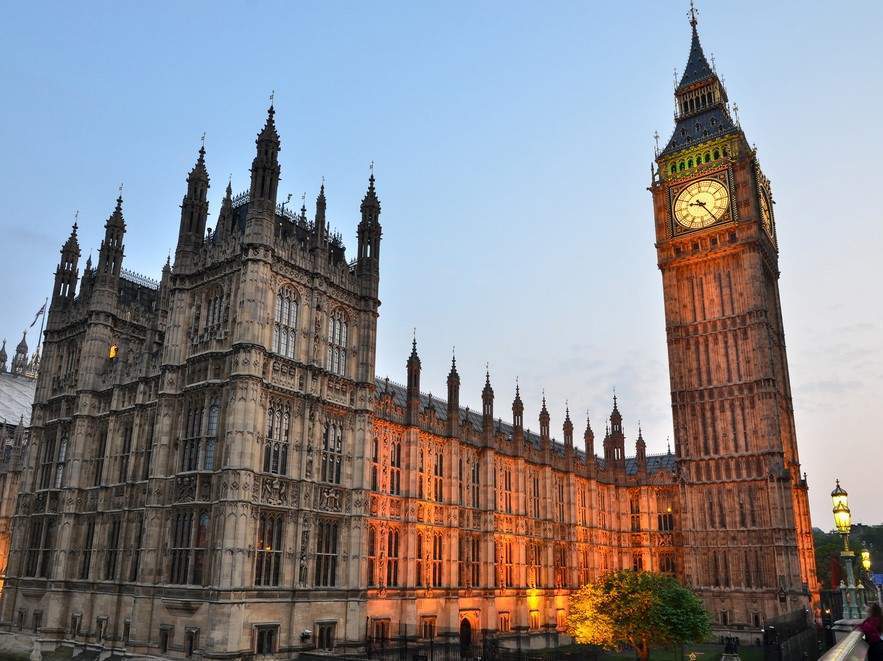
Concerns about the possibility of a no-deal Brexit in March 2019, when the UK begins its transitional period to leave the EU, have been expressed repeatedly by the pharmaceutical industry.
Most recently, AstraZeneca announced it would increase its stockpile of drugs by 20% after organisations, such as the Association of the British Pharmaceutical Industry (ABPI) and BioIndustry Association (BIA), warned that the companies must prepare for the possibility of an interruption in supplies of medication.
The European Medicines Agency (EMA) reiterated the call to European drugs companies that rely on supplies from the UK; both French Sanofi and Swiss Novartis have announced they will stockpile drugs.
As a result, the UK Government has moved to allay worries from the medical industry, among other sectors, primarily by publishing a series of guidance documents.
These industry-focused technical notices try to explain the government’s preparations for a possible no-deal Brexit scenario, as well as to help businesses understand what they need to do to prepare.
Secretary of State for Health and Social Care Matt Hancock played his part in reassuring the pharmaceutical industry by writing a letter to relevant companies regarding the stockpiling of medicines in preparation for a no-deal.
How well do you really know your competitors?
Access the most comprehensive Company Profiles on the market, powered by GlobalData. Save hours of research. Gain competitive edge.

Thank you!
Your download email will arrive shortly
Not ready to buy yet? Download a free sample
We are confident about the unique quality of our Company Profiles. However, we want you to make the most beneficial decision for your business, so we offer a free sample that you can download by submitting the below form
By GlobalDataHancock sought to share his government’s recommendations regarding stockpiling medicines. He called on suppliers to increase their stock of medicines by at least six weeks on top of their existing buffer stocks, as well as ensure that plans are in place to air freight products with a short shelf life. The stockpiling was linked to drug supplies to the NHS from or via the EU or EEA, with the exception of the Republic of Ireland.
Brexit and the pharmaceutical industry: UK government guidelines in case of a no-deal
The first guidance is related to batch testing , which involves confirming by laboratory analysis that every batch of medicine imported into the UK has the correct composition.
The UK Government has announced that if the UK leaves the EU without a deal, in order to ensure the continuity of supply of medicines to the UK, the country will continue to accept batch tests carried out in EU. The relevant countries include those in the EU and the European Economic Area (EEA), as well as a few others.
GlobalData senior analyst Thomas Moore said: ‘‘This news will mitigate the increases in bureaucracy which may slow down how quickly drugs can reach the UK from the EU after Brexit. However, it also represents a loss of control for the UK, which will be forced to continue to adopt EU regulations despite no longer having any influence over them.”
The EMA has yet to officially establish how EU and EEA countries will approach human medicines batch tested and certified in the UK in the event of a no-deal.
Ensuring the safe supply of blood and organs
Another guidance regarding Brexit and the pharmaceutical industry guidance is linked to ensuring blood and blood products are safe.
If there is a no-deal Brexit, the EU Blood Directives will not apply to the UK and the UK will be considered a third country by the EU regarding sharing blood, blood components and information.
The UK Government has declared that in the event of a no-deal, the current blood safety and quality standards for blood and blood components will remain the same, and therefore adhere to EU standards, allowing them to be imported into the EU. This is because the Blood Safety and Quality regulations 2005 would be enshrined in UK law under the EU (Withdrawal) Act (EUWA) powers.
Similarly, the UK Government has laid out its provisions for ensuring the supply, as well as the safety and quality, of organs , tissues and cells in the event of a no-deal.
The UK would no longer be part of the EU Organ and EU Tissues and Cells directives, however, relevant UK establishments, such as stem cell laboratories and fertility clinics, would be required to work to the same standards.
These organisations would need to individually agree on import and export of the products with EU and EEA authorities and establishments.
Regulating clinical trials and marketing approvals
Finally, the UK Government has laid out the arrangements for the marketing approval of human medicines , as well as regulating the clinical trial process.
Currently, the EMA is responsible for the marketing approval of medicines available in the UK. However, if there is a no-deal Brexit, the UK’s Medicines and Healthcare Products Regulatory Authority (MHRA) will take over the functions of the EMA, including managing regulatory applications for pharmaceutical products. This would require changes to UK law and the creation of new procedures and systems. These legislative changes will be planned out during a public consultation period undertaken by the MHRA before the end of the year.
Most medicines on the UK market already have a UK-specific marketing authorisation (MA) and this will not be affected by Brexit. All Centrally Authorised Products (CAPs) that have come to the market by the EMA’s licensing route, will be automatically converted to UK MAs when the UK leaves the EU.
The government intends the MHRA to streamline the applications so that there is no disruption for industry stakeholders and patients in the UK. It has also planned to set up provisions for incentivising companies to seek marketing authorisations for paediatric and orphan medicines in the UK.
In terms of clinical trials, EU regulations agreed in 2004 will remain in force under the EUWA. However, the EU’s 2014 clinical trials regulation will not be in force and cannot be incorporated into UK law because of the provisions of the EUWA. The government has emphasised that it will endeavour to align as closely as possible to the 2014 law, if parliamentary approval allows.
Moore explained: ‘‘This echoes guidance from the MHRA released earlier in August, which outlined what to expect regarding drug regulations post-Brexit, explaining that the UK was dedicated to close regulatory alignment with the EU regarding clinical trials, and also stated that the UK will continue to accept regulatory decisions made by EU committees until the end of 2020. However, the UK will no longer have voting rights on committee decisions during this time period.’’
UK pharma responds to the Government’s announcements
BIA CEO Steve Bates said: “[The] technical notices gives greater clarity on how UK medicines regulation will work in the scenario of ‘no-deal’, something we do not want to see. It’s helpful that the technical guidance on medicines regulation is pragmatic, essentially proposing unilateral recognition of existing process, is in line with industry expectation, and echoes the position of Ministers expressed last year.
“We look forward to further discussion of the detail to build greater clarity around how the complex regulation and supply of medicines would work in the event of ‘no-deal’.
With regard to stockpiling drugs specifically, Bates said: “We encourage pharmaceutical companies that supply medicines for NHS patients from, or via, the European Union or EEA, to engage actively with the Department of Health request for information as to how, or whether, they can, or cannot, ensure an additional minimum of six weeks supply in the UK, over and above their business as usual operational buffer stocks, by 29th March 2019.”
ABPI chief executive Mike Thompson added: “By agreeing to recognise and use medicines and vaccines licensed and manufactured in the EU, the UK Government has taken an important step to protect patients. We urge the EU Commission to do the same.
“We need to be clear that a ‘no deal’ scenario is not in the interest of patients. Both sides must rapidly agree the terms of the UK’s withdrawal and a future relationship based on cooperation to protect public health, control infectious diseases and manage medicine safety.”







